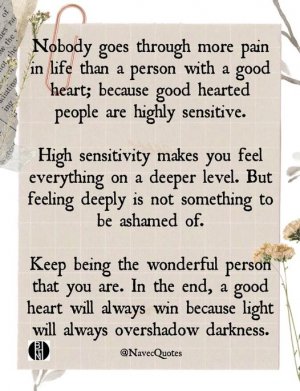grahamg
Old codger
- Location
- South of Manchester, UK
I came across this wonderful lady and her writings and broadcasting maybe fifteen or more years ago, (she has written many books of fiction concerning strange family lives showing a marvellous imagination I think, though she's maybe better known as a broadcaster now).
The book I'm quoting from in the thread title I'm just finishing reading for the first time, (though first published in 1998), and concerns her early life up until she reaches adulthood at around the age of twenty five she says, so largely about her schooldays, moving a lot, and living all around the world (he father being a professor and then diplomat), and her college years, spent at Oxford University at the end of the nineteen sixties).
She quotes a passage from one of her favourite authors, (T. H. White):
"The best thing for being sad is to learn something. That is the only thing that never fails. You may grow old and trembling in your anatomies, you may lie awake at night listening to the disorder of your veins, you may miss your only love, you may see the world about you devastated by evil lunatics, or know your honour trampled in the sewers of baser minds.
There is only one thing for it then - to learn. Learn why the world wags and what wags it. That is the only thing which the mind can never exhaust, never alienate, never be tortured by, never fear nor distrust and never dream of regretting. Look, at what a lot of things there are to learn,..., astronomy in a lifetime, natural history in three, literature in six. And then, after you have exhausted a milliard lifetimes in biology and medicine and theo-criticism and geography and history and economics - why you can start to make a cartwheel out of the appropriate wood, or spend fifty years learning to beat your adversary and fencing. After that you can start on mathematics, until its time to learn to plough."
Libby Purves includes that passage (at the end of a chapter) following an account or discussion of the tougher times she had whilst at college, (including a depressive illness).
The book I'm quoting from in the thread title I'm just finishing reading for the first time, (though first published in 1998), and concerns her early life up until she reaches adulthood at around the age of twenty five she says, so largely about her schooldays, moving a lot, and living all around the world (he father being a professor and then diplomat), and her college years, spent at Oxford University at the end of the nineteen sixties).
She quotes a passage from one of her favourite authors, (T. H. White):
"The best thing for being sad is to learn something. That is the only thing that never fails. You may grow old and trembling in your anatomies, you may lie awake at night listening to the disorder of your veins, you may miss your only love, you may see the world about you devastated by evil lunatics, or know your honour trampled in the sewers of baser minds.
There is only one thing for it then - to learn. Learn why the world wags and what wags it. That is the only thing which the mind can never exhaust, never alienate, never be tortured by, never fear nor distrust and never dream of regretting. Look, at what a lot of things there are to learn,..., astronomy in a lifetime, natural history in three, literature in six. And then, after you have exhausted a milliard lifetimes in biology and medicine and theo-criticism and geography and history and economics - why you can start to make a cartwheel out of the appropriate wood, or spend fifty years learning to beat your adversary and fencing. After that you can start on mathematics, until its time to learn to plough."
Libby Purves includes that passage (at the end of a chapter) following an account or discussion of the tougher times she had whilst at college, (including a depressive illness).


